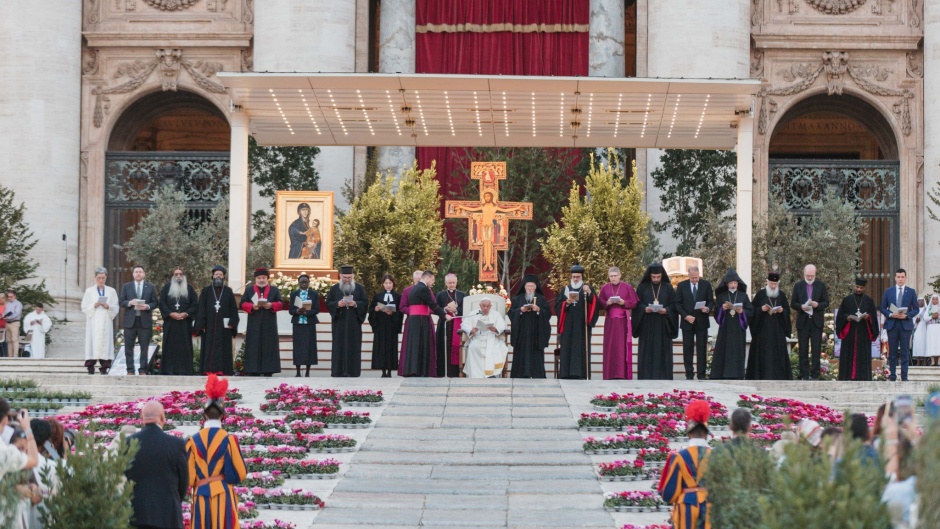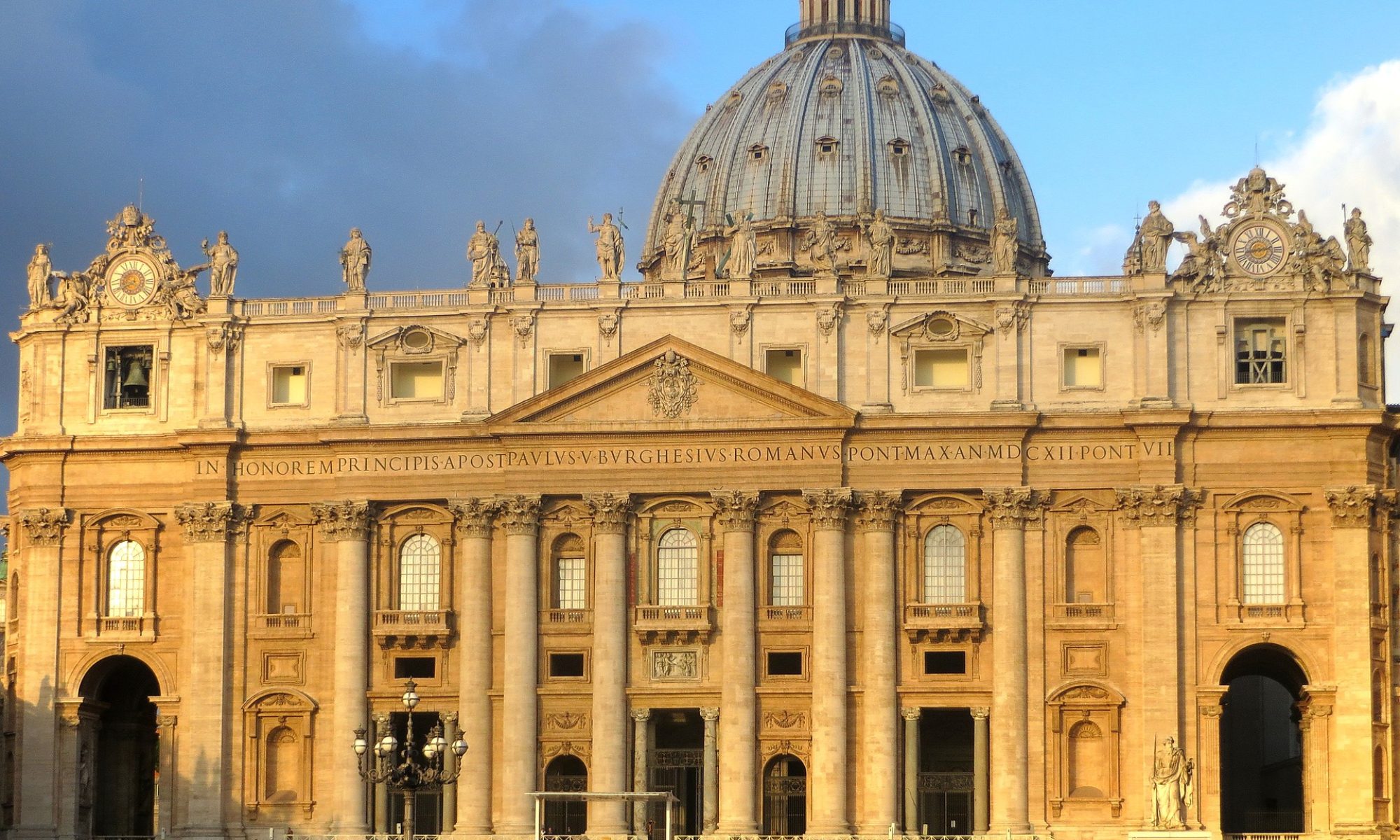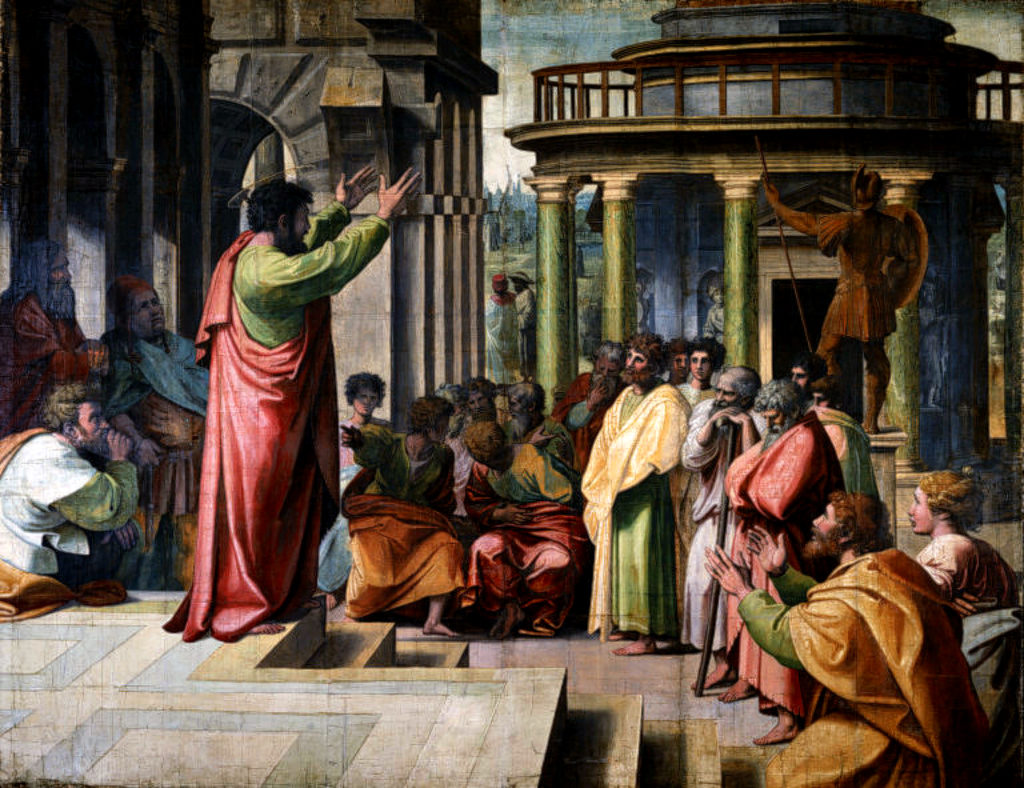
As I speak at conferences on Roman Catholicism worldwide and how Evangelicals should relate to it, a question often arises: “What about joint prayer? Could or should Evangelicals pray with Roman Catholics?” Let me offer my rules of thumb as I wrestle with the issue.
1. The Bible is clear that we should pray for all men and women (e.g. 1 Timothy 2:1), so praying for those friends, colleagues, and family members who are Roman Catholics is mandatory. There is no doubt that praying for Roman Catholics is a God-given responsibility for all evangelicals.
2. The issue becomes critical when discussing praying with Roman Catholics. Praying with someone is a spiritual activity that presupposes the existence of spiritual bonds, i.e. fellowship in Christ. In other words, prayer with someone is legitimate when the people praying together are brothers and sisters in Christ, joining their hearts and voices to praise the Triune God and intercede for various topics in the name of Jesus Christ. Here comes the first problem: according to Roman Catholic doctrine, one becomes a Christian at baptism, normally received when the person is a newborn. It is the sacrament of baptism that makes the person a Christian. For the evangelical faith, one becomes a Christian at conversion when the person believes the gospel of Jesus Christ. The turning point is not the reception of the sacrament (the Roman Catholic view), but personal faith resulting in a transformed life (the biblical view). The reality is that a Roman Catholic person might have received the sacrament of baptism, but she/he is not a believer in Christ in that she/he was never converted. If this is the case, she/he is not a sister/brother in Christ and therefore there is no spiritual bond in Him making it possible to elevate our joint prayers to God. If we pray together, we are saying that we are united in Christ, but since this is not the case, joint prayer should be avoided and practiced with converted people only. This is my daily experience with my Roman Catholic neighbors: most of them were baptized by the Roman Catholic Church but show no evidence of any spiritual life biblically understood. I cannot relate to them as “brothers and sisters.” While I gladly pray for them, I don’t ask for their prayers, nor do I pray with them on the assumption that we are “brothers and sisters” in Christ since we are not.
3. Another aspect that makes common prayer impossible is that Roman Catholicism believes in a different account of the gospel than the biblical one. There are some overlaps in language but fundamental differences in basic truths of the gospel, e.g. the ultimate authority of the Bible in all matters of faith and life and salvation by faith alone. From these different commitments arise contrasting appreciations of the gospel. For example, as far as prayer is concerned, because Scripture is not the ultimate standard and we are thought of as contributing to our salvation through the merits of the saints, Roman Catholicism prescribes prayer to the saints and Mary as intercessors. These are not biblically warranted practices. The Catholic faithful are taught that they can pray to Mary and the saints for their petitions, not to Jesus Christ alone. If you pray with a Roman Catholic, you may use similar words but express different faiths. It is better to avoid generating confusion and ambiguity and respectfully abstain from joint prayer if the people involved have yet to give signs of being converted to Christ. The fact that they are Roman Catholics does not mean they are “brothers and sisters” in the faith.
4. I don’t deny that there are Roman Catholics who are genuinely converted. God’s grace is at work in men and women who trust in Jesus Christ alone for their salvation and desire to follow the Word of God. However, these people have a problem with their Roman Catholic identity. If they follow Christ alone according to the Bible alone, they are inconsistent with their alleged Roman Catholic faith. They may be believers in the biblical sense, but they are inconsistently Roman Catholics. While encouraging one another to grow in our faith, even if this means questioning Roman Catholic beliefs and practice, if they are converted to Jesus Christ and not simply baptized, we can pray with them in private settings characterized by informality.
5. I abstain from participating in joint prayer in public settings and events. Apart from the reasons above (# 2 and 3), another consideration must be made. Once you pray with someone in public, you are conveying that all the participants share the same Christian faith and are “brothers and sisters” in Christ. All existing differences are but footnotes that do not impede biblical fellowship. Because the Roman Catholic account of the gospel is flawed, if we participate in public joint prayer, we accept it as a legitimate version of the true gospel, with minor concerns over secondary issues: this is the symbolic message that comes from public prayers with Catholics. This is even more true when the people we pray with are Roman Catholic priests. If we pray in public with them, we recognize that the Church they belong to and the account of the gospel it promotes are biblical expressions of the Church and sufficiently faithful appreciations of the gospel. It is essential to pay attention to the power of symbols. “Ecumenical” gatherings that include joint prayers want to affirm that all participants recognize one another as “brothers and sisters” in Christ and their respective communities as legitimate expressions of the biblical church.
6. In European ecumenical circles, many joint prayer events are organized around the Week of Prayer for Christian Unity (18-25 January each year) by the Roman Catholic Church and the World Council of Churches. Their view of the gospel and unity is based on the sacrament of baptism (see # 2) and not on personal conversion to Christ. The symbolic message that this initiative wants to promote is that all Christians, despite the denomination and tradition they belong to, are “one,” “united” as “brothers and sisters.” Since this is not the case, I don’t participate in it. While I am willing to engage in dialogue with Roman Catholics at all levels, I consider joint prayer to be the privilege of born-again Christians and not necessarily members of ecclesiastical bodies.


